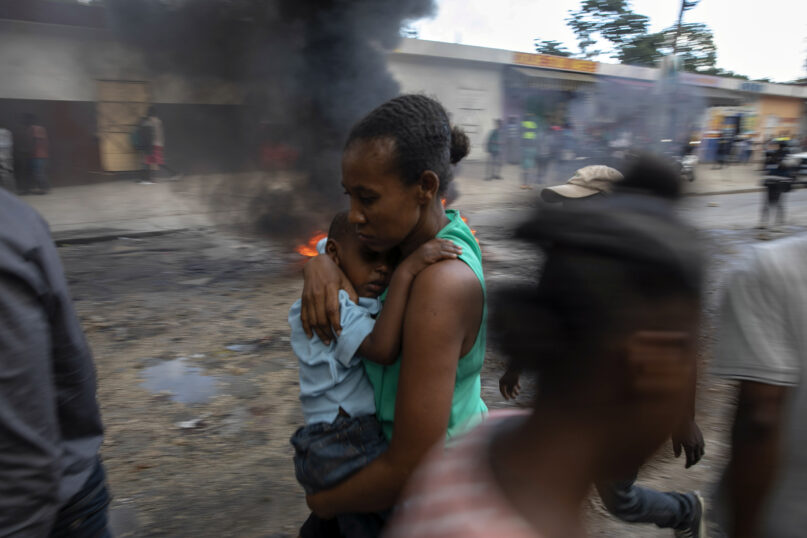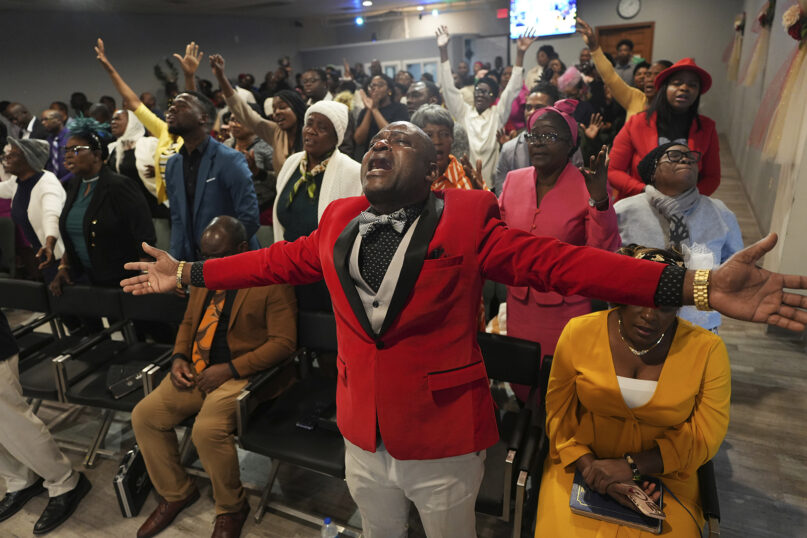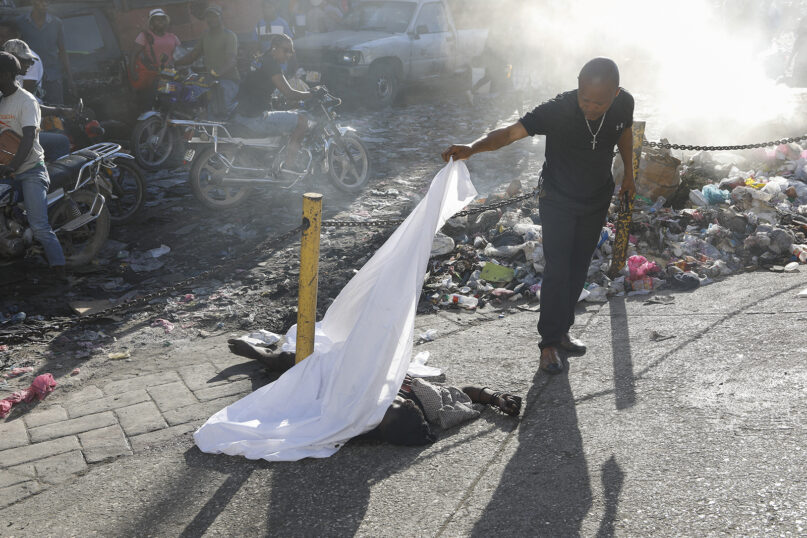(RNS) — A federal judge has blocked the Trump administration’s plans to end temporary protected status for Haitian migrants before it is set to expire in February 2026.
In his Tuesday (July 1) ruling, New York-based Judge Brian Cogan said Department of Homeland Security Kristi Noem didn’t “have statutory or inherent authority to partially vacate a country’s TPS designation.”
The ruling comes months after Noem announced the administration would cut TPS for Haitians, which would have ended their legal status on Aug. 3. The lawsuit was filed against her and President Donald Trump by a group of Haitian migrants and advocacy groups, including the Haitian Evangelical Clergy Association.
For recently arrived Haitians, many of whom fled the gang violence-stricken island, Tuesday’s decision brought a glimpse of hope. Now, the nearly 350,000 Haitians in the country under TPS status have more time to apply for other legal immigration statuses. The program can’t be suspended without a 60-day advance notice, Cogan said in his ruling.

A mother carries her son as she runs past a burning barricade during a protest against the government in Port-au-Prince, Haiti, Nov. 18, 2022. (AP Photo/Odelyn Joseph)
The decision gives Haitians in the country under the law “a little bit of relief,” said Springfield, Ohio-based Pastor Viles Dorsainvil, co-founder of Springfield’s Haitian Support Center, and one of the plaintiffs.
“They have a little chunk of time just to make arrangements if they decide to stay here, or if they decide to go somewhere else because I think that Aug. 3 was too much on short notice for them to do what they had to do,” he said.
The decision is a “victory” that will protect “350,000 immigrants from imminent deportation to Haiti,” wrote attorneys Andrew Tauber and Geoff Pipoly of law firm Bryan Cave Leighton Paisner LLP, which represented the plaintiffs.
“This is a victory not only for our clients, who bravely stood up for what is right, but also for the rule of law,” they wrote in a statement.
The Trump administration said it was prepared to appeal the decision.
DHS Assistant Secretary Tricia McLaughlin wrote in an emailed statement that the ruling “delays justice and seeks to kneecap the President’s constitutionally vested powers under Article II,” referring to his executive powers.

Jean-Michel Gisnel cries out while praying with other congregants at the First Haitian Evangelical Church of Springfield, Jan. 26, 2025, in Springfield, Ohio. (AP Photo/Luis Andres Henao)
“Haiti’s TPS was granted following an earthquake that took place over 15 years ago, it was never intended to be a de facto asylum program, yet that’s how previous administrations have used it for decades,” she said in the statement. “The Trump administration is restoring integrity to our immigration system to keep our homeland and its people safe, and we expect a higher court to vindicate us in this. We have the law, the facts, and common sense on our side.”
Half a million migrants, many from Haiti, were granted TPS under Biden-era programs introduced in 2023 to create legal immigration routes for nationals of Cuba, Nicaragua, Venezuela and Haiti. In October, the Biden administration announced that it would not renew the programs, after suspending them in August following an internal report that flagged possible sponsorship fraud. Despite the suspension, beneficiaries of the programs would still enjoy their legal status until it expired.
In March, the Trump administration overturned the programs, urging beneficiaries to self-deport by late April or prepare to face immigration arrests.
The programs didn’t “serve a significant public benefit, are not necessary to reduce levels of illegal immigration, did not sufficiently mitigate the domestic effects of illegal immigration, are not serving their intended purposes, and are inconsistent with the administration’s foreign policy goals,” Noem said in a March 25 notice.
According to the United Nations, more than 5,600 people were killed due to gang violence in Haiti in 2024. In Port-au-Prince, the nation’s capital, armed gangs have gained control of entire neighborhoods and could soon control the entire city.

A person lifts a sheet to look at the identity of a body lying on the ground after an overnight shooting in the Petion Ville neighborhood of Port-au-Prince, Haiti, March 18, 2024. (AP Photo/Odelyn Joseph)
The DHS decision to cut short Haiti’s TPS status prompted angst among the Haitian community, said Dorsainvil. Some feared arrests by immigration enforcement.
Springfield is home to many Haitians who fled gang violence, and the announcement deterred many from stepping outside, he said. Once thriving, Springfield’s Haitian community saw a decline in church service attendance and English classes.
“That created some kind of chaos,” said Dorsainvil. “And the thing is, not only the chaos, but also they felt like they were being trapped by the fact that it was a short notice. … It was disastrous.”
For those with relatives in Canada, attempting the journey across the border also wasn’t an option, as they feared being detained by U.S. law enforcement and deported back to Haiti. Taking the risk to return to the gang-stricken island would be “a suicidal decision,” he said.
Bishop Nicolas Homicil, pastor at Voice of the Gospel Tabernacle church in the Mattapan neighborhood of Boston, said the ruling gave his migrant congregants “relief for some time.” When the Trump administration announced it would revoke the legal status, members of the community were devastated, he said.
He said the administration is attempting to “mistreat the poor people (of Haiti) who left their home for specific reasons,” and people who were affected started to feel “really depressed” after the decision.
The Trump administration’s plan was part of a broader wave of anti-Haitian sentiment, he said, noting that last summer during the run-up to the presidential election, Trump and now-Vice President JD Vance spread unverified claims that Haitian migrants in Ohio were eating their neighbors’ pets.
Haitians are stuck in a difficult situation, Homicil said, as the U.S. ultimately is set to end TPS for them and they still must find another legal path to stay in the country. Gangs make it impossible for migrants to return in Haiti, he added.
“The country is a disaster, and the U.S. government (knows) that,” he said. “When I heard Homeland Security say that the situation in Haiti has improved, I am wondering which Haiti they are talking about.”







